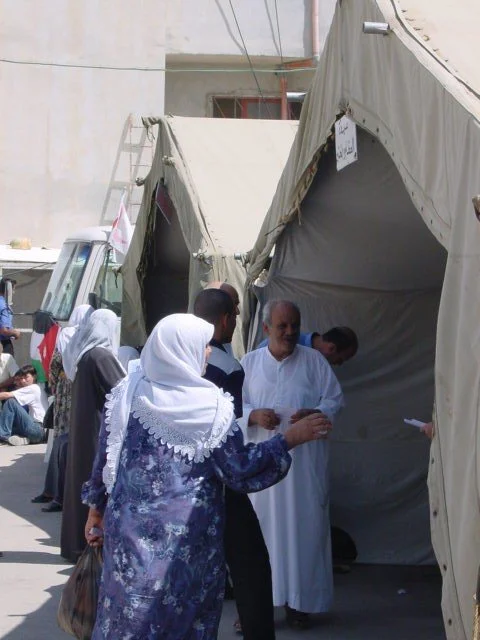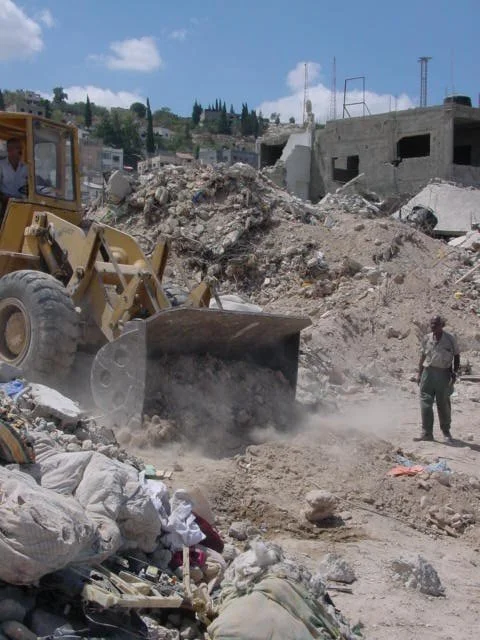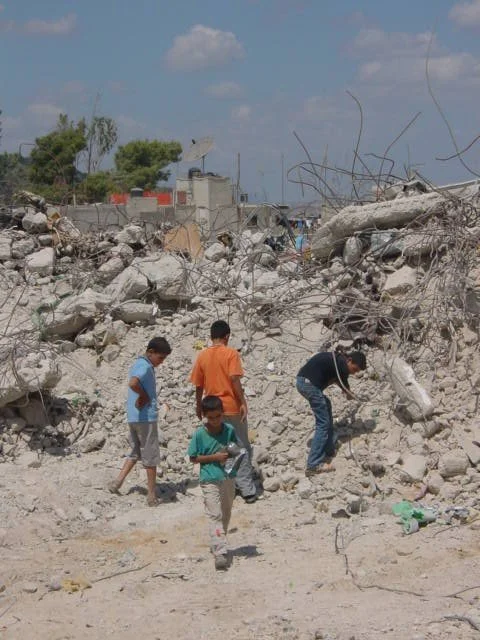September 3, 2002
Officially, the curfew in Jenin was supposed to be lifted from 6 a.m. to 6 p.m. today. But when one of our teachers from Jenin left her house this morning with her children, she found Israeli tanks on every corner and 50-60 soldiers milling about. They waited by the door for a break in the "action", then made a break for the buses. They made it...
Marthame received some visiting British diplomats today whom we had met at William Dalrymple's lecture at Sabeel recently. They were coming on a tour of the area and wanted to see the school in Zababdeh before heading into Jenin. Marthame went with them, tagging along, since he knew the roads. It was pretty bizarre to ride in a diplomatic vehicle with bullet-proof glass.
The Jordanian Civil Hospital in Jenin Camp.
They first went to visit the Jordanian Civil Hospital recently set up near Jenin Camp - it's a military field hospital, worked out in cooperation with the Israelis and the Palestinians, in order to provide medical services - emergency and otherwise - to residents of Jenin. Marthame had visited their site in Nablus a few months back. It's an impressive operation, seeing around 500 patients a day, most of them from surrounding villages. One of the Jordanian doctors the group met with was a Christian, a member of the Evangelical Free Church of Jordan (we didn't even know there was such a thing!).
Clearing away the rubble in Jenin Camp.
Boys searching amidst the Jenin Camp rubble.
The diplomats then headed over to Jenin Camp to visit with folks working on its massive clean-up operation. It's a $27 million operation, which the UAE is acting as fiscal agent for, while the UN oversees the clean-up itself. The central area of the camp's destruction is being dug out, and every day they are still finding unexploded devices. One of the people the group visited with, who has a military background, talked about the battle here from that perspective. The military part of the Israeli action he had no problem with - cornering the resistance fighters into an area bounded by four main streets was good military strategy. It was after that, in his view, that the Israeli army broke all rules of combat, bulldozing and collapsing the area, denying emergency services and relief agencies into the area (though allowing a select few Israeli journalists in)...collective punishment.
It was the first time either of us has been back there since May - they've made impressive progress in their work, but they've got a long way to go. It'll be a while.



